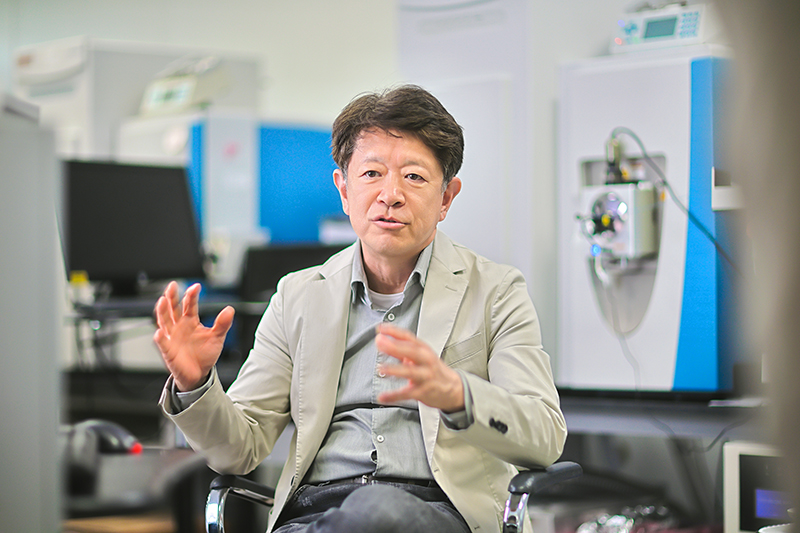header
News
Tailored Therapies Open a New Chapter in Lung Cancer Treatment
- WRITER 학무부총장실

Multi-omics Analysis Predicts Chromosomal Instability and Tumor Microenvironments in Non-Small Cell Lung Cancer
Lung cancer continues to be one of the leading causes of cancer-related deaths in Korea, accounting for approximately 21 percent of such fatalities in 2023. Non-small cell lung cancer (NSCLC), which makes up about 85 percent of all lung cancer cases, presents a wide range of types and characteristics, making it particularly challenging to develop effective treatment strategies. Traditional approaches have primarily relied on histological features, but they fail to meet the demands of modern precision medicine, which require detailed molecular-level classifications and tailored therapies.
Professor Kwang Pyo Kim at the Department of Applied Chemistry has made significant strides in addressing these challenges. His research team has identified new molecular subtypes of NSCLC and uncovered mechanisms linked to the tumor microenvironment. The findings were published in the November issue of Nature Communications (Impact Factor: 14.7) under the title, “Proteogenomic analysis reveals non-small cell lung cancer subtypes predicting chromosome instability, and tumor microenvironment.” Kyung Hee has been a formal member of the Clinical Proteomic Tumor Analysis Consortium (CPTAC) and the International Cancer Proteogenome Consortium (ICPC) since 2021, as part of a partnership with the U.S. National Cancer Institute. This study was conducted as part of an international collaborative effort within these consortia.
Professor Kim’s team performed multi-omics analyses on data from 691 NSCLC patients collected from Korean and international cohorts through collaborations with CPTAC. The analysis identified five novel molecular subtypes that go beyond conventional histological classifications. Subtype 4, characterized by significant tumor invasion and metastasis, is associated with high metastatic rates and poor prognosis. In contrast, Subtype 5 demonstrates immune activation and shows strong potential for favorable outcomes with adjuvant therapies.
A particularly notable finding is Subtype 3, which is predominantly observed in squamous cell carcinoma cases. This subtype is linked to frequent whole genome doubling (WGD) events, resulting in significant chromosomal instability, and is associated with increased expression of the XPO1 protein, a key driver of tumor proliferation. The team demonstrated that selinexor, an XPO1 inhibitor, effectively targets Subtype 3. In contrast, Subtype 1, more commonly found in adenocarcinoma cases, showed limited responsiveness to selinexor.
“These multi-omics-based molecular subtypes provide critical insights that complement traditional histological analyses and pave the way for developing personalized cancer therapies,” Professor Kim explained. Looking ahead, his team plans to leverage advanced technologies, including long-read sequencing and high-performance mass spectrometry, to identify protein isoforms and further advance the field of precision oncology. This research was supported by the National Research Foundation of Korea as part of its Omics-Based Precision Medicine Technology Development Program.